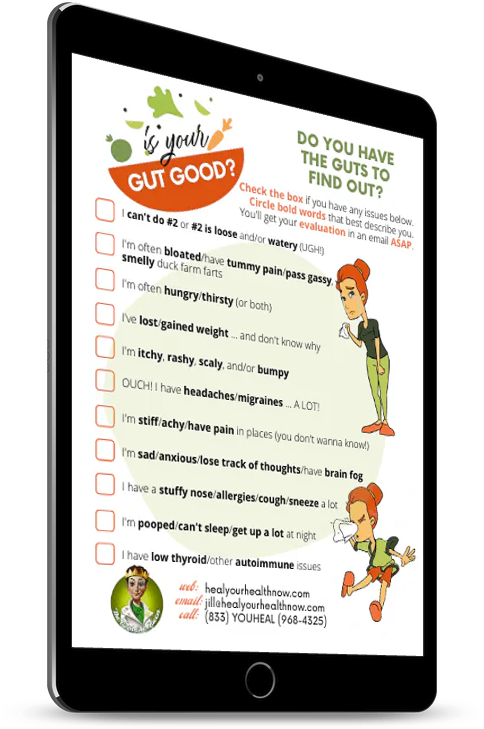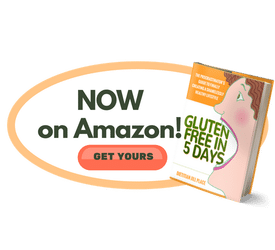Years ago, way before she became a multiple best-selling author and self-help icon, I attended what Marianne Williamson called a food intensive. And I’ll never forget the hollow sound of her pounding her chest in desperation over her overeating. And sharing that [click_to_tweet tweet=”she actually kneeled in front of the refrigerator, begging god to “not let this happen again!” Using food for other reasons than nourishing and nurturing has become epidemic in our society!” quote=”she actually kneeled in front of the refrigerator, begging god to “not let this happen again!” Using food for other reasons than nourishing and nurturing has become epidemic in our society!”]
Why DO we punish ourselves with food?
Even when we know it will make us sick. My client, Sally, is a good example.
Together we identified foods that made her sick with a food sensitivity test almost a year ago. And she has been eating some of them on and off ever since.
Still in the throes of her eating disorder, Sally has been punishing herself by not eating … and eating foods that make her sick … her whole life. Why would anyone want to do that?
First let’s look at the science.
There are a number of chemicals in the brain that are related to an overwhelming desire for certain foods. We call this process “cravings”. Dopamine and opiods are associated with feelings of pleasure. And when we have pleasure with certain foods, these chemicals create new neural and chemical networks that teach us to eat them again and again.
Furthermore, we are still physiologically craving like Neanderthals … echoing a time when fatty, sugary, and high-calorie foods were sought out for survival.
What I learned from the movie, Super Size Me
In the movie, the dietitian explained to Morgan Spurlock that he had become addicted to the 3-meals-a-day McDonald’s menu from which he was partaking. I also remember in the same movie that he super-sized a meal and promptly threw it up.
Spurlock gained 25 pounds and almost ruined his health in the small space of a month. Yet was also addicted to food? How can that be?
There’s a HUGE psychological component to this punishment
Part of the reason we eat the way we do is that we’re only conscious of a small amount of our motivations. We have built up strong unconscious neural and chemical networks based upon years of using food in whatever way we do.
As a result, we turn away from food, binge on large portions … and everything in between. Our habits and emotions mostly rule our eating.
My overeaters have admitted to me that they eat to inflict pain as an act of self-hatred. I can’t tell you how many anorexics and other addicts I’ve met who cut themselves in a similar way.
I know that overeating doesn’t seem nearly as severe as cutting. But food, especially when eaten rapidly in large quantities, can also hurt us physically … not to mention what it ultimately does to our psyches
Eating out of criticism
Another thing that I have heard from clients is that they eat … or not eat … because of someone else, usually a parent or significant other, that constantly criticizes their size. I can’t tell you how many teenagers and young adults have told me that they use their food as a means of control in a situation where they feel out of control.
Particularly when they are given signals that who they are is not OK. Especially when someone else has a size prejudice and withholds love because of it. Or constantly prattles about their own size and the loathing of it.
I had one client who bought a jar of spaghetti sauce and a pound of spaghetti every day on his way home from school, cooked it up, ate it, and stowed the evidence in a chink in the basement wall. Then there was a fire, and his parents found all those jars.
I do believe that this early incident helped my client balloon to over 450 pounds by the time I met him. Yes … I said him. Hurting yourself with food isn’t only relegated to women.
A personal premium on health and fitness
Lastly, we live in a society that puts a personal premium on thinness and fitness. I do see more plus-size people modeling clothing these days in magazines. But those models are usually a size 14, which is the average size of a woman these days.
We’re still barraged with unrealistic, airbrushed images as an ideal for what we’re supposed to look like. Images that fuel the hope of thinness and the multi-billion-dollar diet and fitness industries that dish it out.
So perhaps our overeating and obesity epidemic is about punishing a society that expects us to be perfect. Not only that, people get so fed up with perfection that they abandon all hope of a healthier lifestyle altogether.
Getting out of the food-punishing trap
Perhaps if we changed our focus to make lifestyle change a joyful, compassionate, fun undertaking instead of a downright criticism of who we are, then more people would lose weight and embrace exercise naturally.
The first step out of this self-punishment? Ask yourself why you are doing it. The second step … work with a professional who can unravel it for you as self-examination is often difficult and can be painful. And if you think you’re punishing yourself with food, there may be a deeper reason than just habit.
We deserve a life that honors us
We deserve a life that honors us … no matter what our size and fitness. A life where we feel good about ourselves, eat to our appetites, move our bodies joyfully, and have healthy relationships. Maybe we’ve grown up believing the “the pursuit of happiness” is an inalienable right.
But sometimes getting there takes a lot of soul-searching, the proper tools, and a lot of courage to overcome the messages the world is throwing at you. The good news … groups like the Body Image Movement and Health at Every Size are telling you, “I’m mad as hell and I’m not going to take it anymore!”
Want more peace, less anxiety, more awareness? Need to reign in overeating? I’ve got the answer! Click here to experience the very first of my video Micro-Mindfuls™ … short, simple, sequential, downloadable mindful experiences.


I am 35, 310 pounds. I just realized in the last month or so that my binge eating isn’t a form of comfort but a form of self-loathing. I have no idea how to stop it….no idea where to start to make myself better. I have overcome so much, abuse, addiction, etc….but I don’t know how to fix this. It’s obvious i hate myself and always have. How do I live myself after at least 30 years of self-hatred?!
Thanks …
Thanks!
Not eveyone on the internet lives or grew up in America. I was enjoying reading your page until I hit that bit. So bloody typical American, like no one else in the world exists or matters. It is like screaming “This is for Americans!” Why do you have to reference being American? It is not relevant to your content. It is exclusionary.
So appreciate your feedback. And sorry that you feel that way. But I am an American and that is my frame of reference.
Thanks for the tip; edited it.